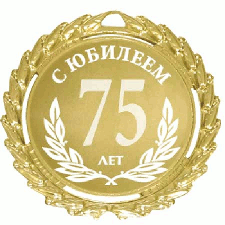


St. Petersburg State University of Information Technologies
E m a i l: a l e x @ d m i t r i y e v . r u
 |
 
St. Petersburg State University of Information Technologies |
AVAILABLE PAPERS LIST OF PUBLICATIONS LINKS RUSSIAN
Scientific interests: Laser interferometry (he has offered and created at the first time the interferometry ellipsometer with visualization of polarized light projection picture on oscilloscope screen); holography (he has developped new analogue holographic method of radio- and sonar- vision), acoustooptics (the principle problems of building of correlators of complex radio-frequency signals is designed on the base of acoustooptic interaction in volume holograms), volume diffraction elements (volume diffraction elements and devices for fiber-optic systems is offered, created and explored in ensemble of varieties), fibre and integral optics (theoretical and experimental studies in the field of creation of compact fiber-optic and integral-optical gyros), semiconductor photonics, physical optics. The research of precise weighing.
Short biography sketch. Prof. Alexander L. DMITRIEV was born in Moscow in 1943. In 1967 he graduated from Dept. of Physics of Leningrad State University. For many year he worked in research and read lectures in the field of physical optics, sensors and lasers. Since 1993 he is a professor at St. Petersburg State University of Information Technologies, Mechanics and Optics. Beginning early 90ties, in cooperation with Institute of Metrology was engaged in research of precise weighing. He published more than 100 scientific works include of monograph "Upravljaemaja Gravitacija" ("Controllable Gravitation"), published in Moscow in 2005. His main line of research is analogy of optical and gravitational phenomena and experimental gravitation.
1. Alexander L. Dmitriev On the nature of inertial mass, Comments: 4 pages, 2 figures, Subjects: General Physics (physics.gen-ph)
Abstract. It is shown that gravitational nature of inertial mass (Mach principle) agrees with idea of interaction of gravitational and electromagnetic forces and does not contradict the laws of classical mechanics. According to the simple phenomenological model the body inertial mass is directly proportional to its gravitational mass and the sum of coefficients, which characterize degrees of interaction of gravitational forces in accelerated motion of the body in accompanying and opposite directions relative to the gravitational force.
2. Alexander L. Dmitriev Measurements of the Influence of Acceleration and Temperature of Bodies on their Weight, Comments: 7 pages, 6 figures. Presented at the 5-th Symposium on New Frontiers and Future Concepts (STAIF-2008), Subjects: General Physics (physics.gen-ph)
Abstract. A brief review of experimental research of the influence of acceleration and temperatures of test mass upon gravitation force, executed between the 1990s and the beginning of 2000 is provided.Results of weighing a rotor of a mechanical gyroscope with a horizontal axis, an anisotropic crystal with the big difference of the speed of longitudinal acoustic waves, measurements of temperature dependence of weight of metal bars of non-magnetic materials, and also measurement of restitution coefficients at quasi-elastic impact of a steel ball about a massive plate are given. A negative temperature dependence of the weight of a brass core was measured. All observably experimental effects, have probably a general physical reason connected with the weight change dependent upon acceleration of a body or at thermal movement of its microparticles.
3. Alexander L. Dmitriev Temperature dependence of gravitational force:experiments, astrophysics, perspectives, Subjects: General Physics (physics.gen-ph)
Abstract. The consistency of the results of measuring the gravitational force temperature dependence obtained by Shaw and Davy in 1923 and by the author in 2003 was shown. Such dependence is observed in the laboratory experiments, it does not contradict the known facts of classical mechanics and agrees with astrophysics data. It was pointed out that experimental research into temperature influence on gravitation was needed and perspectives of developing that trend in gravitation physics was promising.
4. Alexander L. Dmitriev On Possible Causes of Divergencies in Experimental Values of Gravitational Constant, Comments: 2 pages, Subjects: General Physics (physics.gen-ph)
Abstract. It is shown that discrepancies in the experimental values of the gravitational constant might be caused by the temperature dependence of the gravitational force and inequality of the absolute temperatures of sample masses used in various gravitational experiments.
5. Alexander L. Dmitriev On the Experimental Substantiation of Anisotropy of Inertial Mass of Body in the Earth Gravitation Field, St. Petersbourg, 2009. (arXiv: 0903.4433: "gen.-ph")
Abstract. On the basis of the field concept of gravitation and gravitational analogue of the Faradays induction law the difference of inertial mass of a body at its accelerated movement in horizontal and vertical directions relative to the Earth is shown. For an illustration of such a distinction the results of comparison of a motion of balance mechanical watch at horizontal and vertical orientations of balance axis are given. The expediency of statement of precision mechanical experiments with measurement of anisotropy of the inertial mass is noted, allowing to estimate the validity of the field approach in the description of gravitation.
6. Alexander L. Dmitriev Controllable gravitation, - monograph, (Russian) St.Petersbourg, 2005, 70 pages, ill.
7. Alexander L. Dmitriev Nonzero Result of Measurement of Acceleration of Free Falling Gyros With the Horizontal Axis - St.Petersbourg, 2009.
8. Alexander L. Dmitriev, E. M. Nikushchenko Experimental Confirmation of the Gravitation Force Negative Temperature Dependence, 2011.
Abstract. The experiment with weighing PZT-piezoelectric ceramics, heated up by a high-frequency signal for the temperature of 1.6 0‘ is briefly described. The negative change of piezoelectric ceramics weight having relative value of is confidently registered. The sign and the order of the value of relative temperature change of piezoelectric ceramics weight correspond to the measurements of weight of non-magnetic metal bars which were conducted earlier. What is emphasized as expedient for development of physics of gravitation is conducting similar measurements with use of various materials as samples and in a wide range of temperatures.
9. Alexander L. Dmitriev and Sophia A. Bulgakova The Negative Temperature Dependence of Gravity is a Reality
Abstract-Temperature dependence of force of gravitation - one of fundamental problems of physics. This problem has got special value in connection with that the general theory of a relativity, supposing the weakest positive influence of a body temperature on its weight, actually rejects an opportunity of measurement of negative influence of temperature on a gravity in laboratory conditions. Really, the recognition of negative temperature dependence of gravitation, for example, means basic impossibility of achievement of a singularity ("a black hole") at a gravitational collapse. Laboratory experiments with exact weighing the heated up metal samples, indicating negative influence temperatures of bodies on their physical weight are described. Influence of mistakes of measurements is analyzed. Calculations of distribution of temperature in volume of the bar, agreed with experimental data of time dependence of weight of samples are executed. The physical substantiation of negative temperature dependence of weight of the bodies, based on correlation of acceleration at thermal movement of micro-particles of a body and its absolute temperature, are given.
10. A. L. Dmitriev, E. M. Nikushchenko, N. N. Chesnokov "Change of Weight of Airtight Container with Built-in Electromechanical Vibrator,
Abstract Weight (mass) of airtight container about 1.1 with electromechanical vibrator built-in inside, with independent supply and contactless control, has been measured. Decrease of container mass up to 170 , basically, is determined by heating of copper wire of vibrator electromagnet and practically is not related to artifacts - change of buoyancy, air convection, electromagnetic interference.
11. A. L. Dmitriev Gravitational Induction as Analog of Amplification of Light in Active Medium - St.Petersbourg, 2017. [PDF]

Abstract Concept of gravitational induction the essence of which is in the change of gravitation force affecting test mass due to influence of gravitational field on this mass by other masses has been considered. Evaluation of coefficient of induced increase of the gravity in the titanium sample has been shown based on the measurement of weight of nonmagnetic metal rod by its vertical and horizontal orientation.
12. A. L. Dmitriev Physical Gravity - St.Petersbourg, 2018, 240p., ISBN 978-5-6041192-9-7 [PDF]

Abstract In the last century mathematic theory of gravitation has gained great popularity due to active promotion of relativistic methods in interpretation of universal gravitation. Abstract “mathematical gravitation”, positivistic in its basis, is not able to describe all gravitation phenomena. Creation of physical model which describes properties of gravitation and unveils new ways of its progressive development is possible only on the basis of experimental data with the limited set of speculative hypotheses. Realistic physical gravitation similar to the experimental data is an alternative to the “mathematical” one. Collection includes texts of author’s articles and reports published during 1998-2018. They deal with electrodynamic analogies and “non-classic” experimental effects in gravitation. (Rus. + Eng.)
13. A.L. Dmitriev Temperature Dependence of Gravitational Force in the Terrestrial and Space Experiments
- St.Petersbourg, 2020.Abstract Temperature dependence of the force of gravity is one of the important problems in physics. Body’s absolute temperature characterizes body’s internal energy, related to chaotic movement of its particles. Additionally, temperature defines speed and acceleration of body’s mircoparticles. Theory of Relativity hypothesizes that the “weight of energy” positively affects weight of the body based on temperature increase. Such dependence has not yet been proven by laboratory experiments due to extremely low value of expected effect. Instead, kinematic nature of the dependence of the force of gravity from temperature related to accelerated movement of body’s microparticles, explains relatively strong negative temperature dependence of the weight which have been observed during experiments. Such effects suggest need for deeper research of gravity and will have important scientific and practical value.
Знаете ли Вы, что cогласно релятивистской мифологии "гравитационное линзирование - это физическое явление, связанное с отклонением лучей света в поле тяжести. Гравитационные линзы обясняют образование кратных изображений одного и того же астрономического объекта (квазаров, галактик), когда на луч зрения от источника к наблюдателю попадает другая галактика или скопление галактик (собственно линза). В некоторых изображениях происходит усиление яркости оригинального источника." (Релятивисты приводят примеры искажения изображений галактик в качестве подтверждения ОТО - воздействия гравитации на свет)
При этом они забывают, что поле действия эффекта ОТО - это малые углы вблизи поверхности звезд, где на самом деле этот эффект не наблюдается (затменные двойные). Разница в шкалах явлений реального искажения изображений галактик и мифического отклонения вблизи звезд - 1011 раз. Приведу аналогию. Можно говорить о воздействии поверхностного натяжения на форму капель, но нельзя серьезно говорить о силе поверхностного натяжения, как о причине океанских приливов.
Эфирная физика находит ответ на наблюдаемое явление искажения изображений галактик. Это результат нагрева эфира вблизи галактик, изменения его плотности и, следовательно, изменения скорости света на галактических расстояниях вследствие преломления света в эфире различной плотности. Подтверждением термической природы искажения изображений галактик является прямая связь этого искажения с радиоизлучением пространства, то есть эфира в этом месте, смещение спектра CMB (космическое микроволновое излучение) в данном направлении в высокочастотную область. Подробнее читайте в FAQ по эфирной физике.